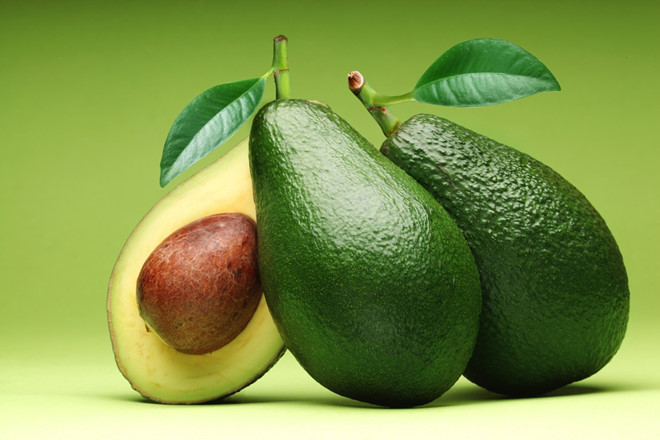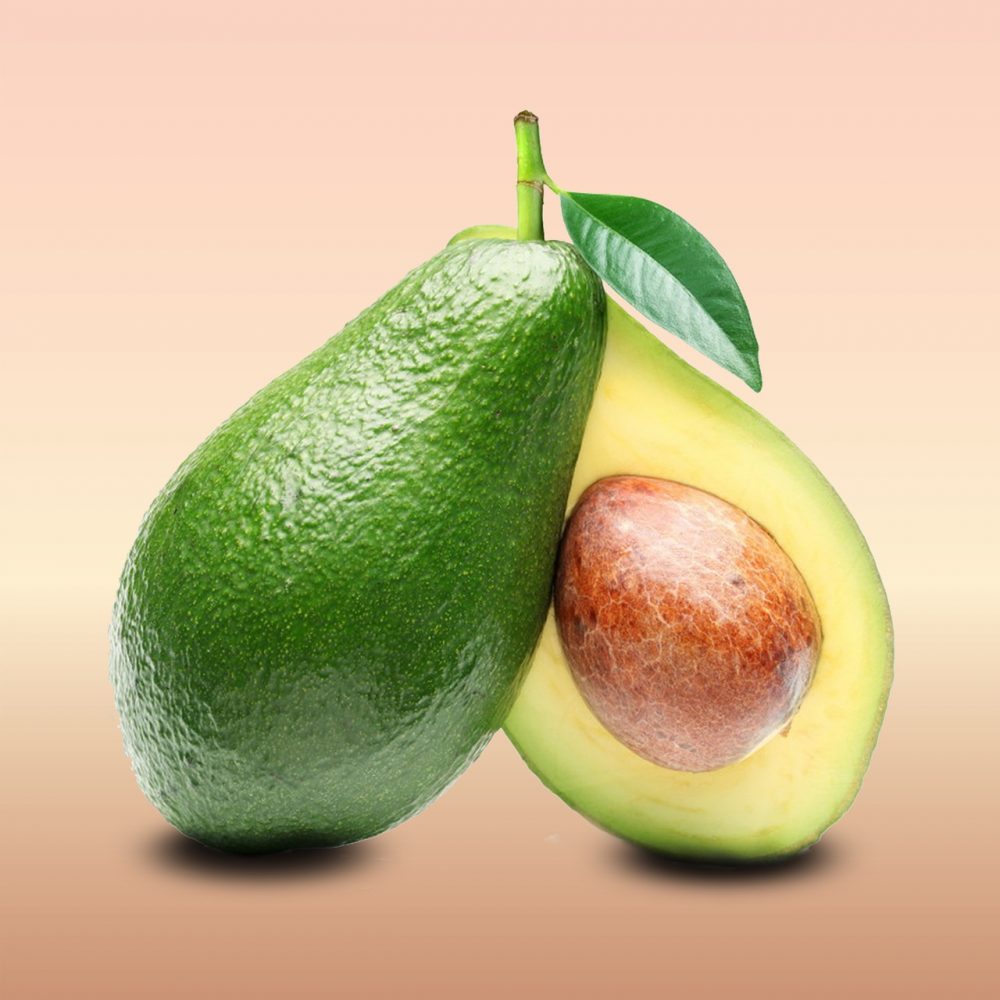Avocado is one of the rare fruits with rich and outstanding nutritional composition. This fruit brings many health benefits such as enhancing cardiovascular function, immune system, eyes, bones and joints,… So is eating a lot of avocado good? The following article will discuss nutritional value, health benefits and answer the above questions.
1. Nutritional value of avocado
Avocado is a fruit with high nutritional value. 100g of avocado flesh provides about 160 kcal. Specifically:
- Protein: 1.9g (of which lysine 147mg)
- Starch: 2.3g
- Fat: 9.4g (of which monounsaturated fat 5.51g and polyunsaturated fat 1.68g)
- Fiber: 0.5g
- Calcium: 60mg
- Iron: 1.6mg
- Magnesium: 24mg
- Copper: 311mg
- Potassium: 351mg
- Vitamin E: 2.66mg
- Beta-carotene: 53mcg
- Vitamin C: 17mg
- Vitamin E: 2.66mg
- Folate: 35mcg
This fruit is very popular because of its delicious taste. You can use this fruit in many different ways such as eating it whole, mashed, blended into smoothies, avocado milk tea, mixed in salads, made into cream sauce, cooked with sweet soup, made into ice cream, made into cakes, made into sushi,…

The question of how much avocado is enough? is of interest to many people.
2. Health benefits of avocado
As mentioned above, avocado has many nutritional values. Here are the health benefits that this fruit brings:
2.1. Strengthening cardiovascular health
Some studies show that potassium is related to lowering blood pressure. On the other hand, avocado is a potassium-rich food. 100g of avocado provides 14% of the body’s potassium, higher than bananas (100g of bananas only provide 10% of the potassium requirement). At the same time, this amount of avocado contains about 76 mg of plant-derived sterol compounds or beta sitosterol. When the body regularly absorbs beta sitosterol and other plant sterols, it can help maintain good cholesterol levels in the body, improving cardiovascular health. Many studies have demonstrated the positive effects of avocado in regulating blood lipids such as reducing triglycerides and blood cholesterol.
2.2. Immune function
Avocados are rich in unsaturated fatty acids and vitamin E, both of which play a role in supporting immunity and reducing inflammation. Therefore, this fruit helps prevent some chronic diseases such as diabetes, cardiovascular disease, arthritis, etc.
2.3. Improve digestive function
Avocados are one of the foods rich in natural fiber. Of which, 25% of the fiber content is soluble fiber, promoting the growth of beneficial intestinal bacteria, helping to prevent constipation, supporting blood sugar control, and reducing the risk of colon inflammation/cancer.
2.4. Prevent osteoporosis
Vitamin K is essential for bone health, by increasing calcium absorption and reducing calcium excretion through urine. However, adding vitamin K to the diet is often overlooked. You can increase this nutrient for your body by eating half an avocado to get 18% of your daily vitamin K needs.
2.5. Cancer Prevention
Folate, phytochemicals and carotenoids are abundant in avocados, which have been studied to prevent certain types of cancer. One avocado can provide 1/3 of the folate needs of a normal adult.
2.6. Mental Health
Studies have shown a link between folate deficiency and depression. Folate helps prevent the accumulation of hemocysteine - one of the substances that reduces circulation and nutrient supply to the brain. A 400-gram avocado can provide about 1/3 of the daily folate needs of an adult.
2.7. Vision
Avocados contain lutein and zeaxanthin, which help absorb light waves that are harmful to vision. People who eat foods rich in antioxidants are less likely to develop age-related macular degeneration. Most of an avocado’s antioxidants are found in the dark green flesh closest to the skin.
2.8. Fetal health
Folate plays an important role in pregnancy, reducing the risk of neural tube defects, miscarriage and anemia. A 400g avocado can provide a quarter of a pregnant woman’s folate needs (600mcg).

Avocado brings many health benefits
3. Is it good to eat a lot of avocado?
Although avocado contains many nutrients and is beneficial for health, not everyone can eat avocado in any amount. To eat avocado properly, you need to rely on each person’s health status and constitution. Specifically:
3.1. Breastfeeding women
Is it good for breastfeeding women to eat a lot of avocado? is a question of many people. According to nutritionists, some avocado varieties may not be safe during this period. For example, Guatemalan avocados have the risk of damaging the mammary glands and reducing milk production.
3.2. People with sensitive constitution
According to experts, people with sensitive constitutions should avoid eating a lot of avocado and avocado products. Because this ingredient can cause allergic symptoms such as rash, itching, swollen lips, eczema, abdominal pain, vomiting, difficulty breathing, and even anaphylactic shock.
3.3. People with liver disease
Some types of avocado essential oils can damage the liver. For example, Mexican avocados contain estragole and anethole – two substances that have been tested to be harmful to the liver and even cause cancer. Therefore, you should be careful when using avocados for people with liver disease.
3.4. People who are taking medication
Avocados can interact with or reduce the effects of some anticoagulants (Warfarin/Heparin), antiplatelet drugs (Clopidogel), non-steroidal anti-inflammatory drugs (Aspirin, Ibuprofen, Naproxen). This food can increase the side effects of cholesterol-lowering drugs. Therefore, you should consult your doctor before intending to eat avocados.
3.5. People who are dieting or losing weight
Thanks to the rich nutritional value of avocados and their high fat content, this fruit can create a feeling of fullness for a long time, reducing cravings. Avocados become one of the good choices for a healthy weight loss diet.
However, how much avocado is enough? An avocado has about 250-300 kcal of energy. Therefore, it is necessary to use it reasonably so as not to exceed the body’s energy needs and ensure the nutritional balance of the diet.
It can be said that the nutritional value in avocado meets many health needs. However, is eating a lot of avocado good? The answer is no, you need to use this food properly in moderate amounts to avoid health risks.





